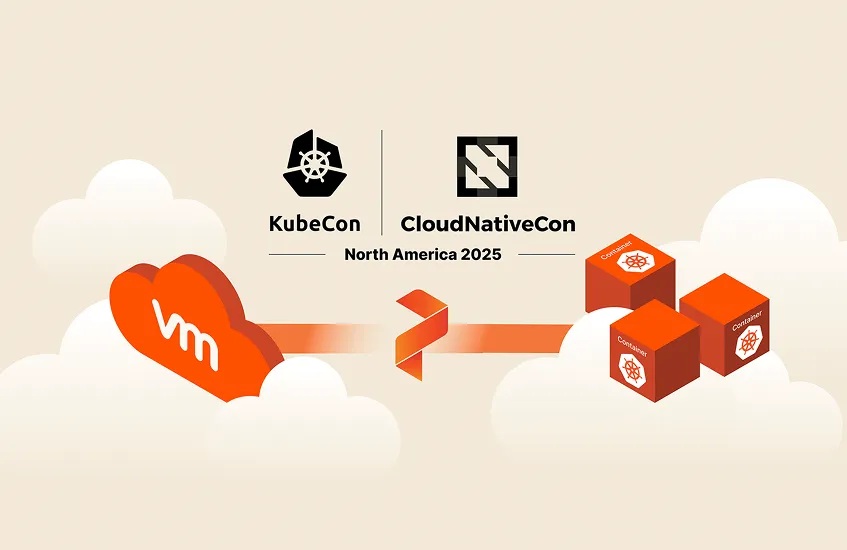Introduction
In the rapidly evolving landscape of cloud-native application development, Red Hat OpenShift has emerged as a powerful platform, enabling businesses to deploy and manage modern applications while maintaining ownership of their data. However, OpenShift deployments are not without challenges, particularly when deployed with built-in solutions like external storage CSI drivers or Ceph-based storage solutions. This blog post delves into five common storage challenges that we have observed working with OpenShift customers and partners, and explores effective solutions to address them with Portworx by Pure Storage.
Common Storage Challenges
1. Lack of Storage Automation
A significant bottleneck in OpenShift deployments is the highly manual nature of Day 1 and Day 2 storage operations. At the core, these heavily manual processes leave developers waiting for tickets to be fulfilled to access key infrastructure, databases, or to add data services like backup and recovery to their application. This lack of storage automation adds significant friction to the development process and hinders overall time-to-market. Incorporating Portworx, allows platform engineering teams to automate storage operations to deliver self-service OpenShift storage to developers and data scientists. By introducing self-service and Day 1 and Day 2 automation, Portworx reduces developer wait time, leading to increasing development velocity, significantly reducing time to market, something seen at Portworx customers like Ford Motor Company.
2. Data Loss
Data is the cornerstone of any application, and its loss can be detrimental to the business. Every minute of downtime can lead to a stopped production line, lost revenue, or a halt in productivity. In OpenShift environments, comprehensive business continuity and data protection is vital to prevent these costly outages from occurring. Existing BCDR approaches for OpenShift deployments (both VM and containers) often fall short for one of two reasons: (1) Lack of enterprise maturity or (2) data technology that was built for legacy, not modern, environments. Portworx uniquely offers a wide range of BCDR tools built from the ground up to protect modern applications, offering app-aware container granular snapshots, enterprise-tested sync and async DR solutions, and built-in autopilot to scale storage capacity as needed. With Portworx, customers, like this large credit card company, can achieve Zero Data Loss and Zero RPO for their Tier 0 and Tier 1 applications with synchronous DR, while achieving an RPO of <15 minutes for lower tier applications running on OpenShift.
3. Operational Complexity
Managing storage lifecycle and performance in Kubernetes environments is complex, especially when those environments become hybrid, multi-cloud OpenShift deployments. While OpenShift solves many of the core app management challenges, when it comes to storage and data operations, most enterprises are forced to duct-tape together different tools to provide the full set of functionality they require. The problem is further exacerbated in enterprises that are running separate VM and container application stacks, managed with separate tools, teams, and processes. Portworx can help simplify and streamline operational complexity by offering a unified approach to storage and data operations on Red Hat OpenShift, from on-prem to the public cloud, as seen at Portworx and OpenShift customers like The Scottish Government.
4. Insufficient Storage
As applications grow, the need for scalable and high-performance storage becomes increasingly critical. OpenShift deployments require storage solutions that can keep up with this demand without compromising performance. Relying on open-source built storage solutions (like Ceph) can cause customers to quickly run into both resource and performance issues. In these instances, enterprises are unable to move their Tier 0 or Tier 1 applications onto OpenShift due to the lack of performance and heavy cost associated with supporting these applications. With the help of partners like Crossvale, implementing Portworx “not only provides over 10 times better performance than ODF (for this use case) but also significantly reduces resource consumption.”
5. Data Portability
In today’s multi-cloud and hybrid cloud scenarios, data portability is essential. According to Red Hat, ~63% of IT leaders have a hybrid cloud infrastructure today, with hybrid cloud being the most likely infrastructure stack for AI/ML workloads. The ability to move applications and data seamlessly across different OpenShift clusters whether they reside on-premises, on the public cloud, across multiple clouds, or in a hybrid environment is the key to unlocking the full value of OpenShift as a modern application development platform. The challenge many OpenShift customers face is that with CSI or Ceph-based solutions, data portability is heavily restricted. In some instances, customers can’t migrate to other Kubernetes platforms. In other instances, customers lack the migration services to seamlessly move data between different environments while maintaining key storage and data services. Portworx delivers ultimate flexibility and choice to customers to build and deploy applications on any cloud, with any database using any Kubernetes distribution, including, but not limited to Red Hat OpenShift, as seen at Portworx customers like Johnson Controls.
Conclusion
Red Hat OpenShift has proven to be a leading modern application development platform. However, storage and data challenges with External Storage CSI or Ceph-based solutions often prevent customers from unlocking the full potential of OpenShift. By overcoming these hurdles, organizations can fully harness the power of OpenShift, driving innovation and operational efficiency in their containerized application deployments.
Visit our website to find out more about how Portworx and Red Hat OpenShift are partnering to address these challenges effectively and deliver an integrated solution that automates, protects, and unifies applications and their data at enterprise-scale.
Share
Subscribe for Updates
About Us
Portworx is the leader in cloud native storage for containers.
Thanks for subscribing!









